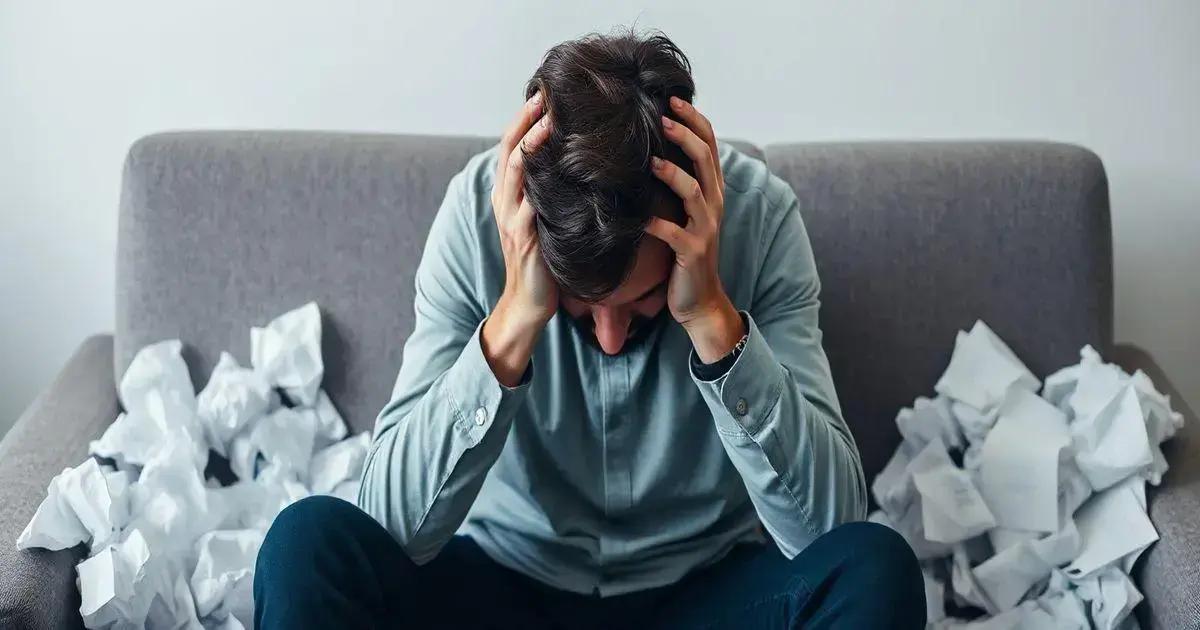The link between erectile dysfunction and mental health issues includes factors such as stress, anxiety, and depression that can hinder sexual function; treatment options like therapy, medication, and lifestyle changes are essential for recovery, alongside building a healthy mind-body connection.
The link between erectile dysfunction and mental health is more profound than many realize. For numerous men, erectile dysfunction is not solely a physical issue; it intertwines deeply with mental health conditions like anxiety and depression. By understanding this connection, we can better address men’s health holistically. In this article, we’ll explore how stress impacts sexual wellness, the effects of depression on erectile function, and the importance of seeking help. Together, we aim to demystify how to foster a healthy mind-body relationship.
Understanding Erectile Dysfunction

Erectile dysfunction (ED) refers to a man’s inability to achieve or maintain an erection suitable for sexual activity. This condition is not just a physical issue; it can also have deep emotional and psychological implications. Understanding erectile dysfunction is essential for addressing both the physical and mental aspects that can contribute to this condition.
Causes of Erectile Dysfunction
ED can stem from various causes, ranging from physical to psychological factors. Common physical causes include:
- Heart disease: Reduced blood flow to the penis due to cardiovascular problems can lead to ED.
- Diabetes: This condition can cause nerve damage and affect blood flow.
- Obesity: Excess weight can contribute to both physical and hormonal issues that impact sexual function.
On the other hand, psychological factors such as stress, anxiety, or depression can also lead to erectile dysfunction. These mental health conditions can create a cycle, where anxiety about performance aggravates the problem further.
The Importance of Understanding ED
Recognizing that erectile dysfunction is multifaceted is crucial. By understanding the various causes of ED, individuals and healthcare professionals can better approach treatment. Whether the root causes are physical, psychological, or a combination of both, exploring these avenues is vital.
Furthermore, stigma associated with ED often prevents men from seeking help. Breaking down these barriers and fostering open conversations about the link between erectile dysfunction and mental health is essential for effective treatment.
When erectile dysfunction is viewed in the context of mental health, it highlights the importance of a comprehensive treatment approach. This may involve therapy, lifestyle changes, or medication tailored to individual needs.
The Impact of Stress and Anxiety

Stress and anxiety are significant factors that can impact erectile dysfunction (ED). When a man experiences stress, whether from work, relationships, or financial concerns, it can lead to various physical and mental reactions. This often manifests in the body through increased heart rate, muscle tension, and changes in hormone levels.
How Stress Affects Sexual Function
Stress can disrupt the balance of hormones in the body, particularly cortisol, which is known as the stress hormone. Elevated cortisol levels can impede sexual function by:
- Reducing libido: When stressed, a man may find himself less interested in sex.
- Interfering with blood flow: Stress causes blood vessels to narrow, which can make it difficult to achieve an erection.
- Triggering performance anxiety: Concerns about sexual performance can create a cycle of anxiety that exacerbates the issue.
The Role of Anxiety
Anxiety, especially performance anxiety, can lead to a fear of sexual encounters. This fear can create a stressful situation, causing men to worry about their ability to perform. Such anxiety often leads to:
- Negative thoughts: Worrying about disappointing a partner can make the experience more daunting.
- A decrease in pleasure: Focusing on anxiety instead of enjoyment can make it harder to become aroused.
By recognizing that stress and anxiety play a crucial role in erectile dysfunction, men can begin to address these issues directly. Effective stress management techniques, such as deep breathing, meditation, or seeking professional help, can improve both mental health and sexual performance.
Seeking Balance
Finding a balance between managing stress and maintaining a healthy sex life is key. Communication with partners about feelings and concerns can also alleviate some of the pressures associated with performance anxiety. Talking openly can foster understanding and support, making it easier to navigate these challenges together.
How Depression Affects Sexual Function

Depression is more than just feeling sad; it can significantly impact sexual function. When a person suffers from depression, it often leads to a range of emotional and physical symptoms that can disrupt intimacy and sexual health.
Understanding the Effects of Depression
Depression can alter both hormonal levels and the brain’s neurochemistry. This may lead to:
- Decreased libido: A common effect of depression is a reduced interest in sex. People experiencing depression often do not feel like engaging in sexual activities.
- Difficulty achieving arousal: Depression can prevent proper blood flow and arousal responses, making it challenging to become sexually excited.
- Delayed or absent ejaculation: Men may find it harder to reach climax due to the emotional and physical barriers depression creates.
Emotional Blocks and Performance Anxiety
Alongside physical symptoms, depression often causes emotional issues such as low self-esteem, guilt, and anxiety. These feelings can contribute to:
- Performance anxiety: Fear of underperforming in bed may cause avoidance of sexual situations altogether.
- Feelings of inadequacy: Men might believe they are not fulfilling their partner’s needs, which can create further emotional distance.
The intertwining of these factors makes it challenging for individuals suffering from depression to maintain sexual intimacy in their relationships.
Communication is Key
Open communication with partners can help maintain intimacy while dealing with depression. Discussing feelings and experiences can lead to understanding and support, which is vital for overcoming the negative effects of depression on sexual function.
Seeking Help: Treatment Options

Seeking help for erectile dysfunction (ED) linked to mental health issues is crucial for improving quality of life. There are various treatment options available that can address both the physical and psychological aspects of ED.
Therapy and Counseling
Psychological counseling can be a great starting point. Therapy options include:
- Cognitive Behavioral Therapy (CBT): This type of therapy helps individuals identify and change negative thought patterns related to performance and sexual health.
- Couples Therapy: Engaging in therapy as a couple can enhance communication, resolve underlying issues, and strengthen emotional connection.
Medication
There are several medications available designed to treat erectile dysfunction. Some commonly prescribed options include:
- Phosphodiesterase type 5 (PDE5) inhibitors: These medications, like Viagra and Cialis, enhance blood flow to the penis, helping to achieve an erection.
- Hormone therapy: In cases where low testosterone levels are a factor, hormone replacement therapy may assist in restoring libido and sexual function.
Lifestyle Changes
Incorporating healthy lifestyle changes can also help improve erectile function. Steps can include:
- Regular exercise: Physical activity can enhance blood flow, boost mood, and alleviate anxiety.
- Proper diet: A balanced diet rich in fruits, vegetables, and whole grains can promote better overall health, including sexual health.
- Adequate sleep: Prioritizing rest can improve mental health and hormone levels.
Medical Procedures
For some men, other medical interventions may be considered:
- Pump devices: Vacuum erection devices can help draw blood into the penis and produce an erection.
- Surgery: In severe cases, penile implants or vascular surgery may be recommended.
Each treatment option varies in effectiveness, and a tailored approach is necessary. Consulting with a healthcare professional can ensure that the selected treatment aligns with individual needs and concerns, addressing both erectile dysfunction and mental health issues.
Building a Healthy Mind-Body Connection

Building a healthy mind-body connection is vital for improving sexual function and overall well-being. Mindfulness practices, physical fitness, and emotional awareness can enhance both mental and sexual health.
Mindfulness and Meditation
Engaging in mindfulness and meditation helps reduce stress and anxiety. These practices promote:
- Increased awareness: Being in tune with your body and thoughts can lead to greater self-acceptance and alleviate negative feelings associated with erectile dysfunction.
- Enhanced relaxation: Mindfulness techniques can lower cortisol levels, promoting a calmer state of mind that is conducive to sexual intimacy.
Regular Physical Activity
Staying physically active is essential for a healthy mind-body connection. Physical exercise helps in the following ways:
- Improved blood flow: Exercise increases circulation, delivering more oxygen and nutrients to the body.
- Boosted mood: Physical activity releases endorphins, which can enhance mood and counteract feelings of depression and anxiety.
- Increased stamina: Regular exercise can improve endurance, making physical intimacy more enjoyable.
Healthy Eating
Nutrition also plays a critical role in maintaining the mind-body connection. A balanced diet can support both physical and mental health:
- Heart health: Foods rich in antioxidants and healthy fats, like fruits, vegetables, and nuts, contribute to better cardiovascular health, which is essential for erectile function.
- Mood improvement: Some foods, such as fatty fish, can positively impact mental health by providing essential fatty acids that promote brain function.
Emotional Awareness and Expression
Being aware of and expressing your emotions is important for building a strong mind-body connection:
- Open communication: Talking about feelings with a partner can foster closeness and reduce anxiety associated with erectile dysfunction.
- Journaling: Writing about feelings and experiences can help clarify thoughts and reduce stress, making it easier to cope with challenges.
By focusing on these aspects, individuals can strengthen their mind-body connection, which can aid in alleviating the challenges related to erectile dysfunction.
Understanding the Connection Between Erectile Dysfunction and Mental Health
Throughout this discussion, we have explored the intricate link between erectile dysfunction (ED) and mental health issues. From understanding the physical and psychological causes of ED to recognizing the impact of stress, anxiety, and depression, it’s clear that addressing mental health is crucial for effective treatment.
Seeking help through therapy, medication, and lifestyle changes can provide pathways to recovery, while building a strong mind-body connection fosters overall well-being. It is essential to break the stigma surrounding these issues and encourage open conversations. By doing so, individuals can seek the support they need to improve both their sexual and mental health.
Ultimately, prioritizing mental wellness is not only beneficial for managing erectile dysfunction but is also key to enriching overall quality of life and intimate relationships.
FAQ – Frequently Asked Questions about Erectile Dysfunction and Mental Health
What is erectile dysfunction?
Erectile dysfunction (ED) is the inability to achieve or maintain an erection sufficient for sexual intercourse. It can be caused by physical or psychological factors.
How does mental health affect erectile dysfunction?
Mental health issues like stress, anxiety, and depression can disrupt sexual function, leading to erectile dysfunction. These conditions can create a cycle that exacerbates the problem.
What treatment options are available for erectile dysfunction?
Treatment options range from therapy and counseling, medications like PDE5 inhibitors, lifestyle changes, and in some cases, medical procedures such as vacuum devices or surgery.
How can I build a healthy mind-body connection?
Building a healthy mind-body connection involves mindfulness practices, regular physical activity, healthy eating, and open emotional communication with partners.
Is it important to seek help for erectile dysfunction?
Yes, seeking help is essential for addressing both the psychological and physical aspects of erectile dysfunction. It can lead to effective treatment and improved relationships.
How does lifestyle affect erectile dysfunction?
Lifestyle factors such as diet, exercise, and sleep play a crucial role in both mental and physical health, significantly impacting erectile function.












